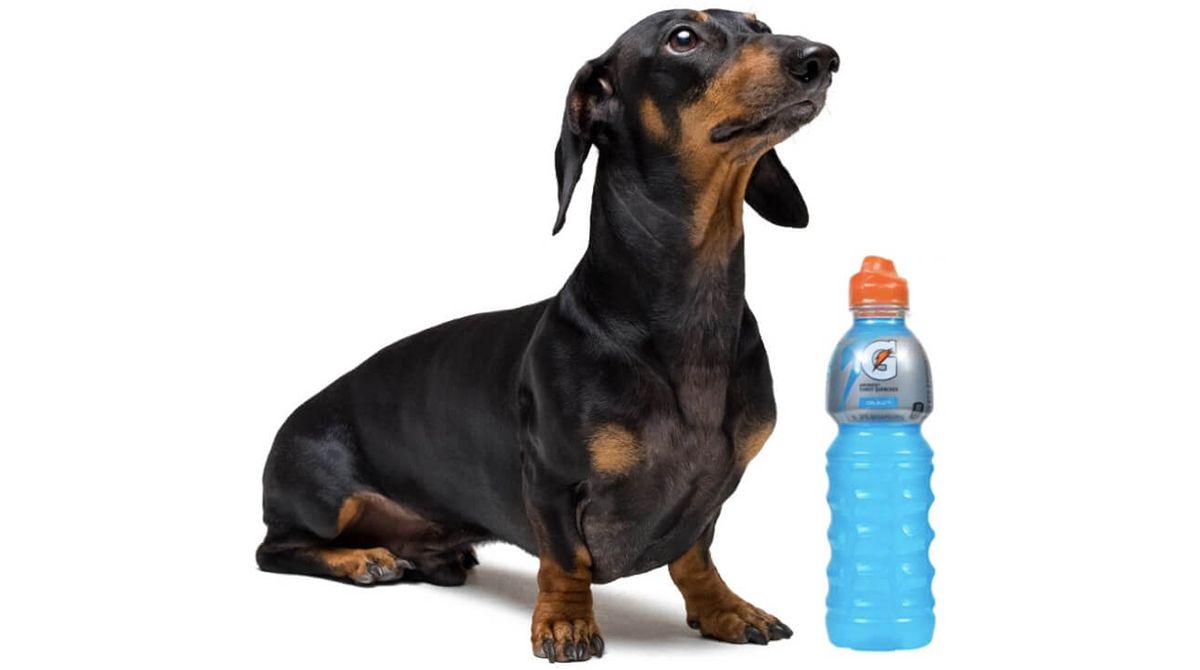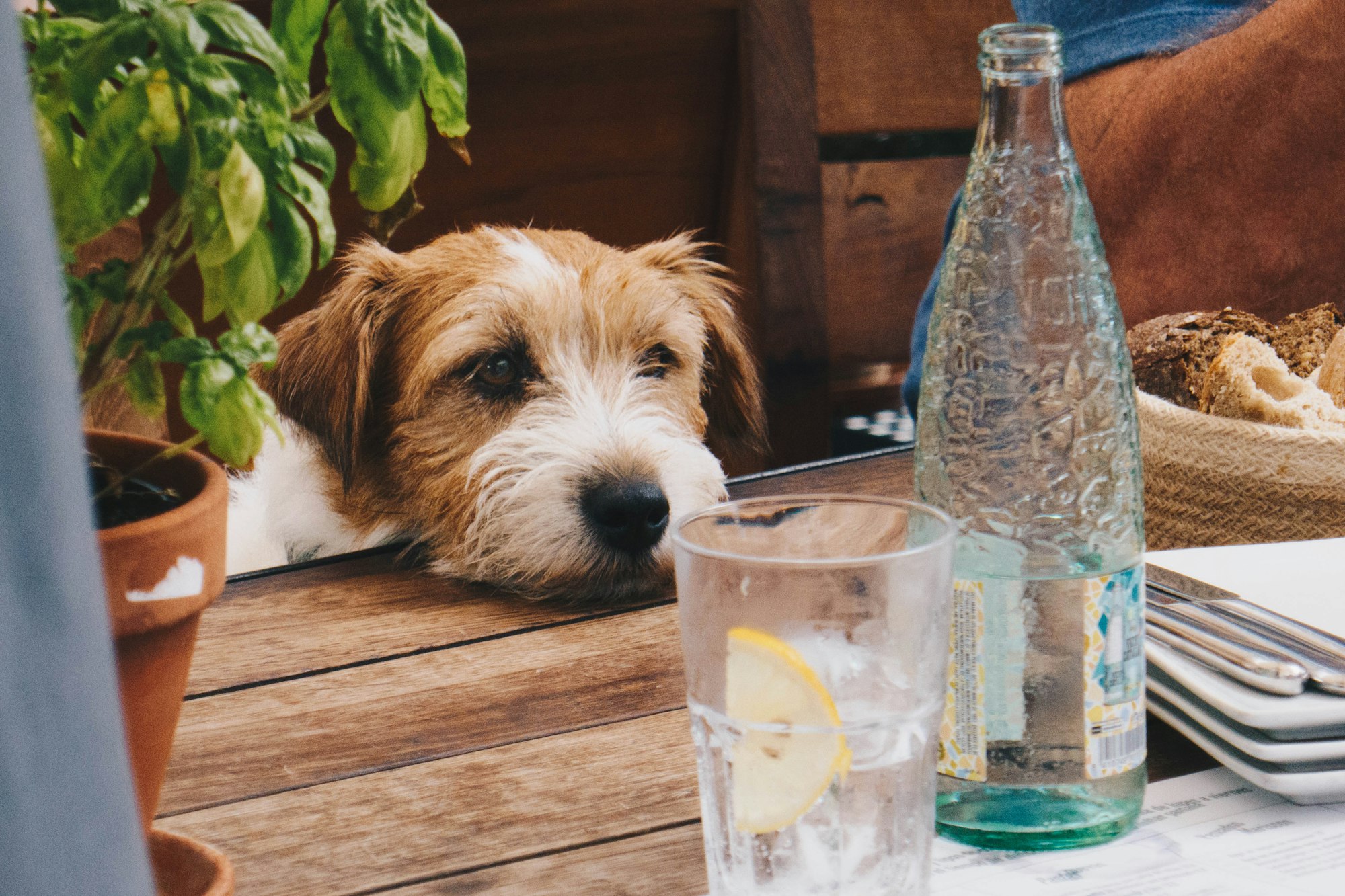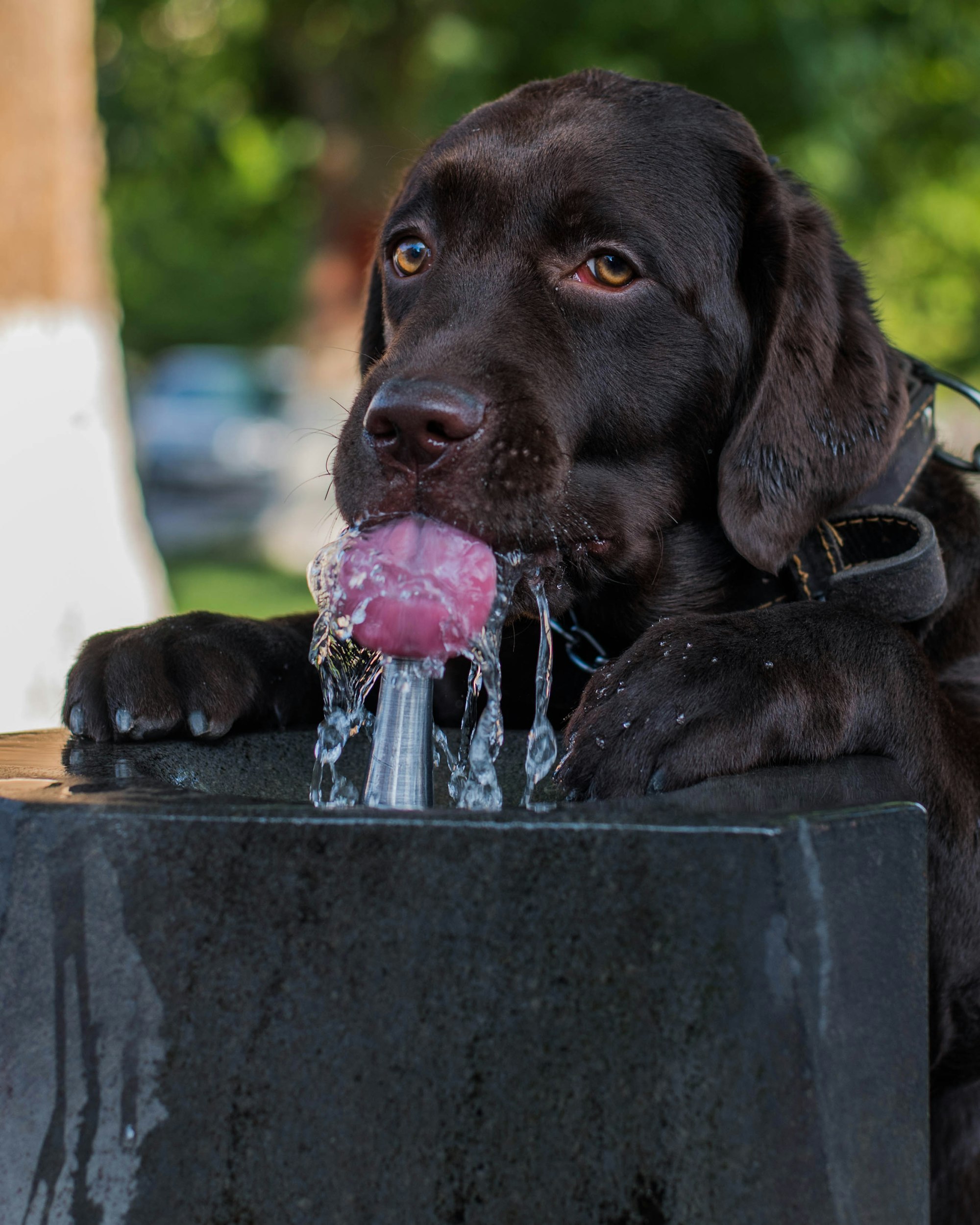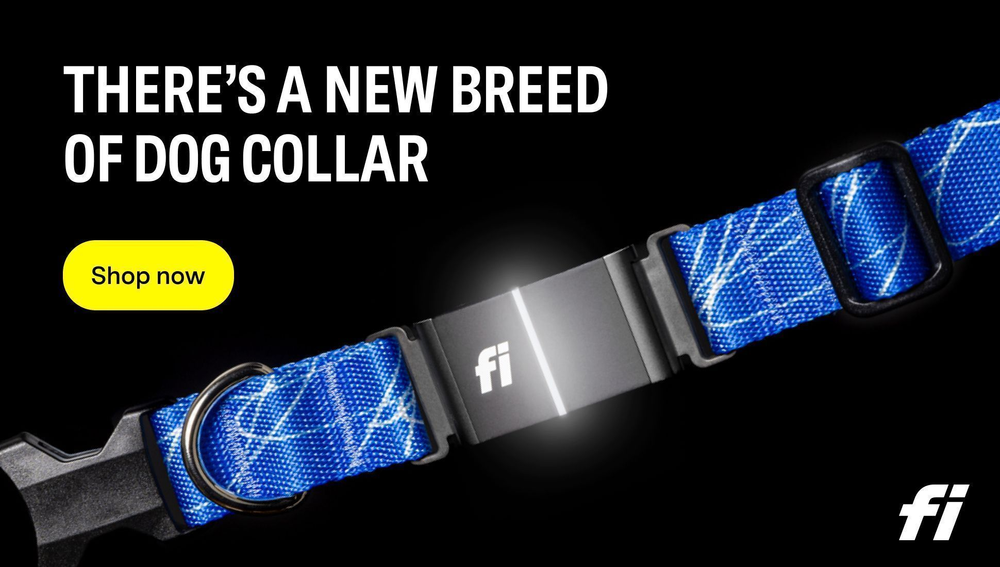When it comes to keeping our furry friends hydrated, we often wonder if we can offer them certain human beverages. One popular drink that raises questions is Gatorade. Known for its ability to replenish electrolytes and quench our thirst, Gatorade may seem like a tempting option for hydrating our dogs as well. However, it's essential to understand the potential risks and alternatives before giving Gatorade to our canine companions.

Understanding Gatorade
Gatorade is a popular sports drink designed to help athletes rehydrate and replenish electrolytes lost through sweating during physical activity. It contains water, sugar, electrolytes (such as sodium and potassium), and sometimes artificial flavors and colors. While Gatorade can be beneficial for humans in certain situations, its suitability for dogs is a subject of debate.
The Ingredients in Gatorade
Gatorade contains various ingredients that are not suitable for dogs. Some of these include artificial sweeteners like sucralose and food coloring, which may have adverse effects on a dog's health. Moreover, Gatorade often contains high amounts of sugar, which can be harmful to dogs if consumed in excess.
Hydration in Dogs
Proper hydration is essential for maintaining the health and well-being of our beloved dogs. Just like humans, dogs rely on water to support various bodily functions and stay hydrated. In this section, we will explore the importance of hydration for dogs and how we can ensure they receive an adequate water supply.
Water plays a vital role in a dog's body. It helps with digestion, nutrient absorption, circulation, and temperature regulation. Additionally, water is necessary for the proper functioning of the dog's organs, including the kidneys, liver, and heart. Without enough water, dogs can experience dehydration, which can lead to serious health issues.
To ensure your dog stays properly hydrated, here are some essential tips to follow:

Provide Access to Clean Water: Always provide your dog with access to fresh and clean water. Make sure to refill the water bowl regularly, especially during hot weather or after physical activity.
Monitor Water Intake: Pay attention to your dog's water intake. While the amount of water needed varies based on factors like size, activity level, and weather conditions, a general guideline is for a dog to drink about one ounce of water per pound of body weight each day.
Consider Water Quality: It's necessary to ensure the water you provide for your dog is safe and free from contaminants. If you have concerns about the quality of your tap water, you can consider using filtered or bottled water for your pet.
Offer Water during Meals and Exercise: Dogs may need additional water during mealtimes and after exercise. Providing water before and after meals, as well as during breaks in physical activity, helps maintain hydration levels.
Travel with Water: When taking your dog on outings or trips, always carry an adequate supply of water and a portable water bowl. This ensures that your dog can drink water when needed, even when away from home.
Recognize Signs of Dehydration: It's crucial to be familiar with the signs of dehydration in dogs. Common symptoms include excessive panting, dry gums, loss of skin elasticity, lethargy, and decreased appetite. If you suspect your dog is dehydrated, consult your veterinarian for guidance.
Consider Water Alternatives: In addition to regular water, there are other ways to keep your dog hydrated. Some dogs enjoy consuming water-rich foods like watermelon or cucumber. However, it's essential to ensure that any alternative sources of hydration are safe and suitable for your dog's dietary needs.
Remember that certain factors can increase your dog's water requirements, such as hot weather, intense physical activity, or certain medical conditions. It's essential to adjust their water intake accordingly to prevent dehydration.
By prioritizing hydration and following these guidelines, you can ensure that your furry friend remains healthy and well-hydrated. Regular access to clean water and attentiveness to their hydration needs will contribute to their overall well-being and quality of life.
The Dangers of Giving Gatorade to Dogs
While Gatorade may be a popular choice for rehydrating humans, it is significant to understand that it can pose risks to dogs. Although it contains electrolytes and is designed to replenish fluids in the human body, Gatorade is not suitable for canine consumption. Here are some reasons why giving Gatorade to good family dogs can be dangerous:
1. High Sugar Content: Gatorade contains a significant amount of sugar, which can be harmful to dogs. Dogs have different metabolic systems than humans, and excessive sugar intake can lead to weight gain, dental problems, and an increased risk of developing diabetes.
2. Artificial Additives: Certain variants of Gatorade contain artificial flavors, colors, and preservatives. These additives can potentially cause gastrointestinal upset, allergies (allergic reactions), or even toxicities in dogs. It is best to avoid exposing dogs to unnecessary artificial ingredients.
3. Electrolyte Imbalance: Dogs have specific electrolyte requirements that differ from those of humans. Giving Gatorade to dogs can disrupt the delicate balance of electrolytes in their bodies, potentially leading to imbalances that can be harmful to their health.
4. Sodium Content: Gatorade is often high in sodium, which can be detrimental to dogs, especially those with underlying kidney or heart conditions. Excessive sodium intake can put strain on the kidneys and contribute to increased blood pressure, leading to complications in dogs with pre-existing health issues.
5. Risk of Overhydration: Dogs have different hydration needs than humans. Giving them Gatorade, which is designed for human athletes, can lead to overhydration. Overhydration can result in a condition called hyponatremia, where the electrolyte balance is disrupted due to excessive water intake. This condition can be life-threatening for dogs.
Remember, it is always better to prioritize your dog's health and well-being by providing them with appropriate and safe hydration options. By avoiding Gatorade and opting for alternatives that are suitable for dogs, you can ensure that your furry companion stays happy, healthy, and well-hydrated.

Alternative Hydration Options for Dogs
While Gatorade may be a popular choice for rehydrating humans, it is decisive to understand that it can pose risks to dogs. Although it contains electrolytes and is designed to replenish fluids in the human body, Gatorade is not suitable for canine consumption. Instead of offering Gatorade to your dog, it is crucial to provide them with the appropriate hydration they need in a safe and dog-friendly manner.
Opt for the following alternatives as the best alternatives for dog hydration:
1. Fresh Water: Fresh, clean water is the best and safest option to keep your dog hydrated. Ensure that your dog has access to water at all times, especially during hot weather or after physical activities.
2. Dog-Specific Electrolyte Solutions: If your dog requires electrolyte replenishment due to illness or excessive exercise, consult your veterinarian for dog-specific electrolyte solutions. These are formulated to meet the specific needs of dogs and can provide the necessary hydration without the risks associated with human sports drinks.
3. Homemade Hydration Solutions: You can make homemade hydration solutions by mixing water with a small amount of low-sodium chicken or beef broth. Ensure that the broth does not contain any seasonings or additives that may be harmful to dogs.
4. Easing fear at the vet: If you have concerns about your dog's hydration or need advice on the best practices for keeping them properly hydrated, consult your veterinarian. They can provide tailored guidance based on your dog's individual needs.
By avoiding Gatorade and opting for alternatives that are suitable for dogs, you can ensure that your furry companion stays happy, healthy, and well-hydrated.
Signs of Dehydration in Dogs
Dehydration can be a serious health concern for dogs and pet owners need to be able to recognize the signs. By identifying the early symptoms of dehydration, you can take prompt action and prevent further complications. Here are some common signs of dehydration in dogs to watch out for:

1. Excessive Panting: Dogs regulate their body temperature through panting. If you notice your dog panting excessively, especially in situations where they haven't exerted themselves or in cool environments, it could be a sign of dehydration.
2. Dry Gums and Nose: Dehydrated dogs often have dry or sticky gums and a dry nose. Normally, a dog's gums should be moist and their nose should be cool and wet. If these areas appear dry, it may indicate dehydration.
3. Loss of Skin Elasticity: One way to check for dehydration in dogs is by gently pinching and lifting the skin on the back of their neck or between their shoulder blades. If the skin takes longer to return to its original position or stays tented, it could be a sign of dehydration.
4. Lethargy and Weakness: Dehydration can cause dogs to become lethargic, tired, and weak. They may appear less active or reluctant to engage in their usual activities.
5. Sunken Eyes: When a dog is dehydrated, their eyes may appear sunken or have a dull appearance. This can be observed by looking at the area around the eyes and noting any changes in their usual appearance.
6. Decreased Appetite: Dehydration can lead to a decreased appetite in dogs. If your happy dog suddenly shows a lack of interest in food or has a significant decrease in their food consumption, it could be an indication of dehydration.
If you suspect that your dog is dehydrated, take immediate action to address the situation. Here's what you can do:
1. Offer Water: Provide your dog with fresh and clean water. Encourage them to drink by offering it in a bowl or using a pet water fountain. Monitor their water intake to ensure they are adequately hydrated.
2. Seek Veterinary Attention: If your dog shows severe signs of dehydration, such as persistent vomiting, diarrhea, or extreme lethargy, it is critical to seek how often vet care. A veterinarian can provide the necessary treatment and further evaluate your dog's condition.

Remember, prevention is key. Ensure that your dog always has access to clean and fresh water. During hot weather or periods of increased physical activity, monitor their water intake closely and provide them with opportunities to drink frequently. By staying vigilant and addressing dehydration early on, you can help keep your furry friend healthy and well-hydrated.
Conclusion
While Gatorade may be suitable for humans, it is not recommended for dogs. Due to its sugar content, artificial ingredients, and potential electrolyte imbalances, it's best to avoid giving Gatorade to your furry friends. Opt for safer alternatives like fresh water, dog-specific electrolyte solutions, homemade broth, or ice cubes. Remember to keep an eye out for signs of dehydration and provide your dog with proper hydration to ensure their well-being.
Frequently Asked Questions (FAQs)
Here are some frequently asked questions about Gatorade for dogs:
1. Q: Can dogs drink Gatorade Zero?
A: Gatorade Zero still contains artificial sweeteners and is not recommended for dogs. Stick to alternatives like freshwater or dog-specific electrolyte solutions.
2. Q: Is it safe to give Gatorade to puppies?
A: No, it's not safe to give Gatorade or any other sugary beverages to puppies. Puppies should rely on their mother's milk or a veterinarian-recommended milk replacer for hydration.
3. Q: Can dogs drink flavored electrolyte water for humans?
A: Flavored electrolyte water for humans may contain artificial additives that can be harmful to dogs. Stick to dog-specific electrolyte solutions or consult your veterinarian for advice.
4. Q: How can I encourage my dog to drink more water?
A: You can try adding a small amount of low-sodium chicken broth to your dog's water bowl or using a pet water fountain to make the water more enticing for them.
5. Q: Are there any dog-friendly sports drinks available?
A: Yes, there are dog-specific sports drinks available in the market. Consult your veterinarian for recommendations based on your dog's specific needs.






